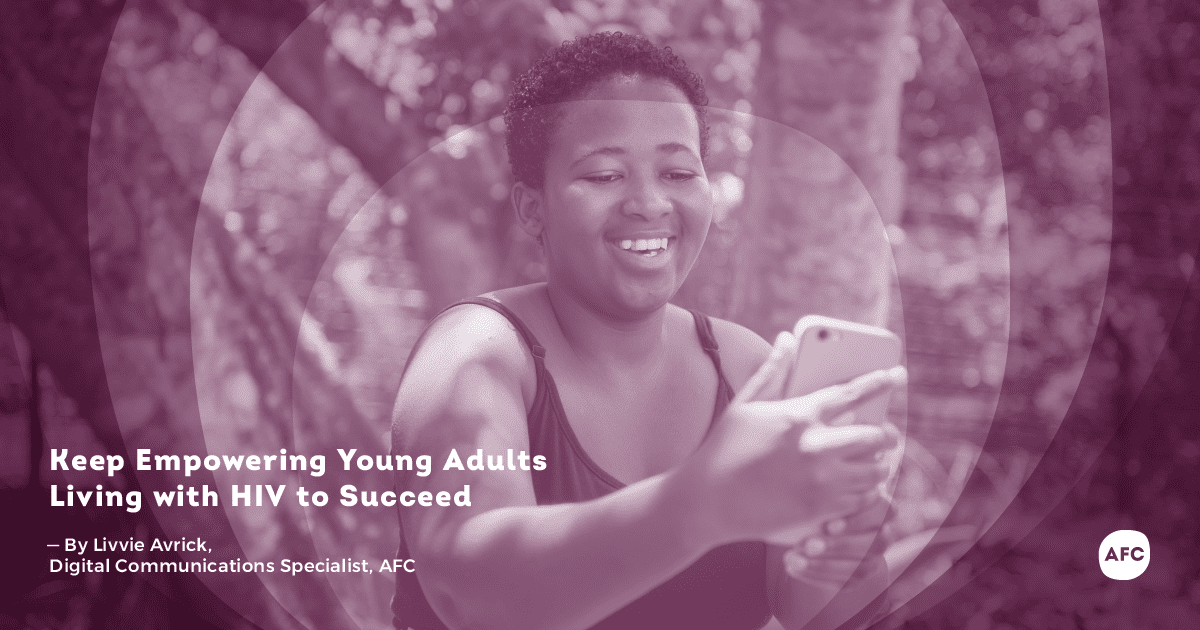By Tyline Burgess, Communications Manager, AFC
Black Maternal Health Week takes place from April 11-17 each year. This week is important as it aims to raise awareness about the maternal health crisis that disproportionately affects Black women in the United States. This year’s theme is “Our Bodies Belong to Us: Restoring Black Autonomy and Joy!”
According to the Centers for Disease Control and Prevention (CDC), Black women are three to four times more likely to die from pregnancy-related complications than white women. This disparity is particularly alarming considering that the United States is one of the wealthiest countries in the world, with advanced healthcare systems and medical technology.
There are several factors that contribute to this health disparity, including poverty, lack of access to healthcare, implicit bias and discrimination within the healthcare system, and chronic stress caused by racism and discrimination. Black women are also more likely to experience complications during pregnancy, such as pre-eclampsia and gestational diabetes. Black women are also more likely to experience maternal mortality and morbidity due to lack of access to quality healthcare, and the lack of attention paid to the health needs of Black mothers during and after childbirth.
Homelessness is a factor that can exacerbate the maternal health crisis affecting Black women. According to the National Alliance to End Homelessness, Black people are disproportionately affected by homelessness, making up 39% of the homeless population despite comprising only 13% of the general population.
Because housing is an essential part of healthcare, homelessness can also make it more difficult for pregnant Black women to access healthcare and prenatal care, leading to untreated medical conditions and increased risk of complications during pregnancy and childbirth. In addition, homeless Black mothers may disproportionately face additional stressors, such as food insecurity, and exposure to violence and trauma, which can further contribute to poor maternal health outcomes. Homelessness has a significant impact on the health and well-being of pregnant women and their babies, including increased risk of maternal mortality and morbidity, preterm birth, and low birth weight.
HIV is another issue that disproportionately affects Black mothers. According to the CDC, Black women accounted for 55% of new HIV diagnoses among women in 2019. HIV can have significant impacts on maternal and child health, including increased risk of preterm birth, low birth weight, and mother-to-child transmission.
In addition to maternal mortality and morbidity, Black women are also more likely to experience pregnancy-related complications such as preterm birth, low birth weight, and infant mortality. According to the CDC, the infant mortality rate among Black infants is 2.4 times higher than the rate among white infants.
This year’s theme, “Our Bodies Belong to Us: Restoring Black Autonomy and Joy!”, is an important reminder that Black women have the right to autonomy over their own bodies and to experience joy throughout their pregnancy and childbirth journeys. This theme seeks to empower Black women and to restore their agency over their own bodies, something that has been historically denied to them.
Black Maternal Health Week is an important time to raise awareness about the maternal health crisis affecting Black women in the United States. Addressing the maternal health crisis affecting Black women requires a multifaceted approach that addresses not only healthcare access and quality, but also social determinants of health such as housing, food security, and exposure to trauma and violence. Additionally, addressing the disproportionate impact of HIV on Black mothers requires targeted interventions and resources to ensure access to prevention, testing, and treatment services. The Black maternal health crisis requires a concerted effort to address systemic racism and discrimination within the healthcare system and to address the social determinants of health that contribute to poor maternal health outcomes. Black Maternal Health Week provides an opportunity to raise awareness about these issues and advocate for meaningful change to improve maternal health outcomes for Black women.



